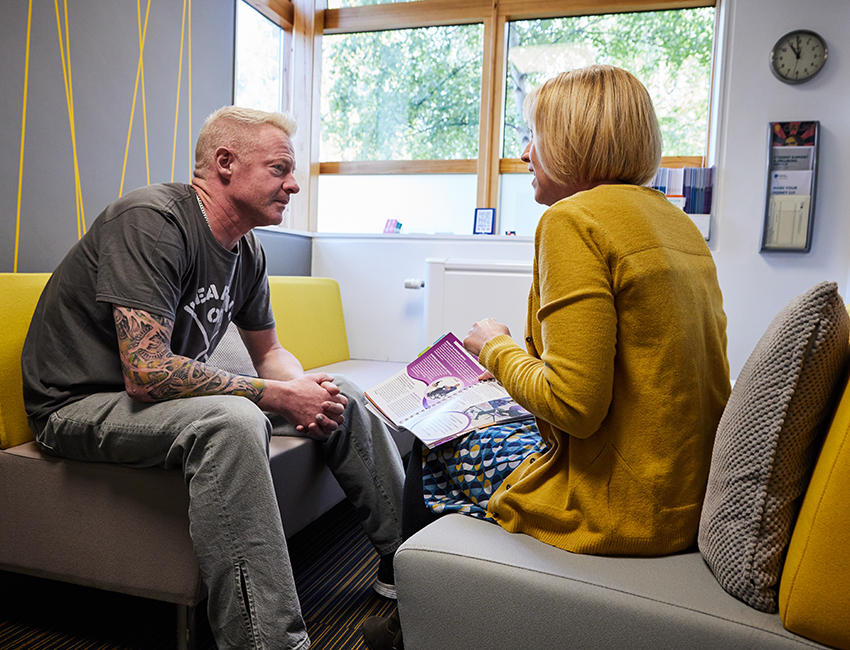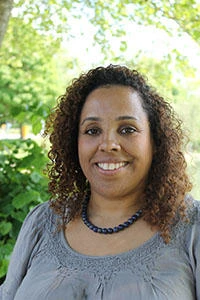Social work can be challenging, but it’s also deeply rewarding. We’ll support you to discover the areas of social care that most interest you and match you to relevant professional placements, ensuring you’re well-prepared for life after graduation.
in the UK for graduate prospects
in the UK for teaching quality
Accreditation
This degree is accredited by Social Work England, the social work regulator. Successful completion of the programme means you’ll be eligible to apply for registration – a requirement for practising social workers in England.
First for jobs
The University of Worcester is first in the UK for sustained employment, further study or both, five years after graduation (excluding specialist institutions) - Longitudinal Educational Outcomes Survey 2024. Read more.
Overview
A common misconception is that social work is all about supporting young people and their families. And while many social workers do choose to work in children’s services, this is not your only career option. Social workers help people – no matter who that person may be. From those experiencing homelessness to care leavers, to mental ill health and substance abuse, you’ll be able to make a real difference to individuals, families and communities in need.
Our degree programme is designed to support you to become a confident and competent practitioner, equipped to work with children and adults in a variety of environments. After graduating, you’ll be able to register with the social work regulator, Social Work England - a requirement for practising social workers.
You’ll be taught by experienced social work academics and current practitioners with a breadth of experience across the sector. You’ll also have regular opportunities to learn firsthand from service users and carers from the local community through the University’s IMPACT scheme.
Much of your learning will take place in small group seminars, meaning you’ll have plenty of opportunities to learn from your fellow students through informal discussions and debates. We make the most of our excellent on-campus facilities through our simulated learning exercises. Whether you’re role-playing an at-home visit in our simulated adapted semi-detached house , or learning how to give evidence in our replica courtroom, you’ll have plenty of opportunities to hone your practical skills before heading out on placement.
Placements
By the end of this course, you’ll have built up 170 days of professional experience – 70 days in year two and 100 days in year three. Our team work hard to link you with placements in social work areas you’re interested in, and as conveniently located as possible.
Recent placements have included roles in:
- Local authorities
- Hospitals and hospices
- Drug and alcohol services
- Homelessness services
- Advocacy services
- Mental health services
- Domestic abuse organisations
You’ll also be assigned a dedicated practice educator – a registered social worker who will supervise your placements and support you in transferring the skills you’ve learned on campus into a professional work environment.
Course content
On this accredited programme, you’ll learn the skills, theories and policies you need to practice social work. You’ll then apply your knowledge to real-world contexts through simulated learning exercises and professional placements.
Throughout the course, you’ll gain a broad range of experience in the field, with qualified social workers supervising you as you complete a total of 170 days of placement in two contrasting settings.
All modules are mandatory to ensure your eligibility for the Social Work England register.
Careers
Most of our graduates become registered social workers upon successful completion of the programme.
As a social worker, you can work with a wide variety of people, including:
- Young people and their families
- Older people
- People with learning and/or physical disabilities
- Children and young people who offend
- People with mental ill health
- School non-attenders
- People with drug and alcohol dependencies
- The homeless
While many social workers are employed by local authorities, there are also opportunities to work in hospitals and hospices, GP surgeries, schools, health services, children’s homes, charities, and nursing homes.
Other career options
Social work students can also progress into diverse roles across the health and social care area:
- Youth worker
- Family support worker
- Equality, diversity and inclusion officer
- Special Educational Needs Coordinator (SENCo)
- Community development worker
Opportunities to progress
You may wish to take your learning further and progress onto postgraduate study. Relevant postgraduate degrees at Worcester include:
Course highlights
Teaching and assessment
Teaching is a mix of interactive seminars, lectures, one-to-one tutorials and practical skills sessions.
Your assessments will help prepare you for a career as a social worker and include writing reflective essays and reports, engaging in group debates, collecting portfolios of evidence and completing skill simulations.
Teaching and assessment contents
You are taught through a combination of formal lectures, seminars, group work tasks and interactive skills workshops. Lectures by both academic staff and current practitioners provide you with expert knowledge and contemporary theory relating to social work practice, while seminars and group work tasks enable you to develop your understanding of topics in greater depth, as well as learning from your peers. Skills workshops offer opportunities for practical application and rehearsal of core social work skills, whilst receiving feedback from practitioners and service user and carer colleagues.
In addition, meetings with personal academic tutors are scheduled on at least 4 occasions in the first year and three occasions in each of the other years of a course.
Meet the Social Work team
Meet some of the Social Work team that you'll be learning from.
Student case studies
Find out more about some recent Social Work BA students.
Entry requirements
UCAS tariff points required: 120
| Qualification | Grade |
|---|---|
| A-level | BBB |
| BTEC National Extended Diploma | DDM |
| T-level | Merit |
We do accept Access to HE Diplomas and other qualifications which may not exactly match the combinations above. Work out your estimated points with the UCAS tariff calculator.
Any questions?
If you have any questions about entry requirements, please call our Admissions Office on 01905 855111 or email admissions@worc.ac.uk.
Fees
Fees contents
UK and EU students
The Government has announced that it will increase tuition fees and maintenance loans by 3.1% from the 2025/26 academic cycle. Subject to approval, the University intends to increase our tuition fees in line with this and as per our terms and conditions. This means that from September 2025 the standard fee for full-time home and EU undergraduate students on BA/BSc/LLB degrees and FdA/FdSc degrees will be £9,535 per year for new and continuing students.
For more details on course fees, please visit our course fees page.
International students
The standard tuition fee for full-time international students enrolling on BA/BSc/LLB degrees and FdA/FdSc degrees in the 2025/26 academic year is £16,700 per year.
For more details on course fees, please visit our course fees page.
How to apply
How to apply contents
Applying through UCAS
UCAS is the central organisation through which applications are processed for full-time undergraduate courses in the UK.
Read our how to apply pages for more information on the application process, or if you’d like to apply for part-time study.
Social Work BA (Hons) - L500
Contact
If you have any questions, please get in touch. We're here to help you every step of the way.

Admissions Office
admissions@worc.ac.uk01905 855111More to explore
Open Days
Visiting us is the best way to get a feel for student life at the University of Worcester.

The City of Worcester
Worcester is a welcoming university city with great transport links and plenty of student parking.

Accommodation
Benefit from our accommodation guarantee. We have rooms on campus to suit every budget including en-suite options.













